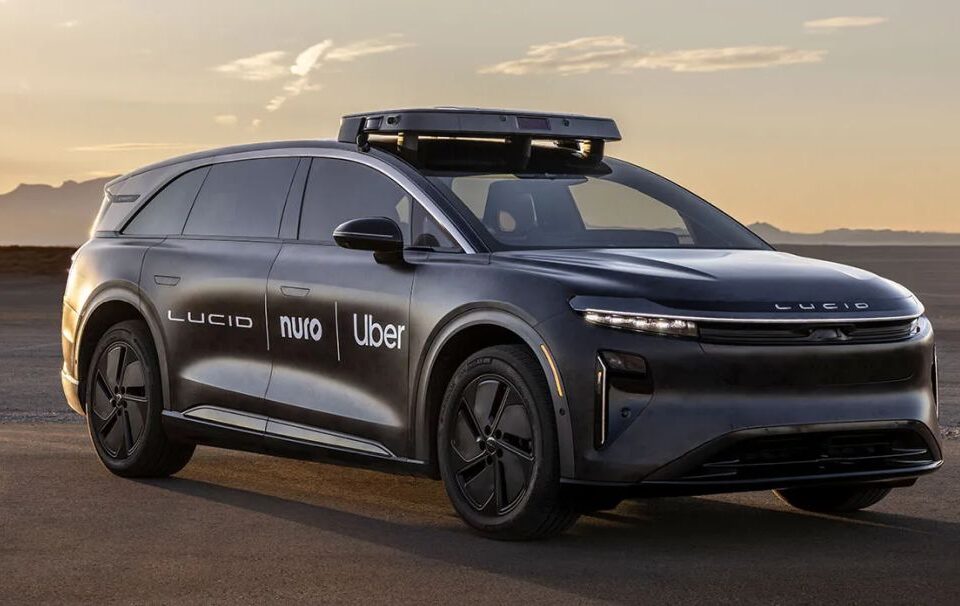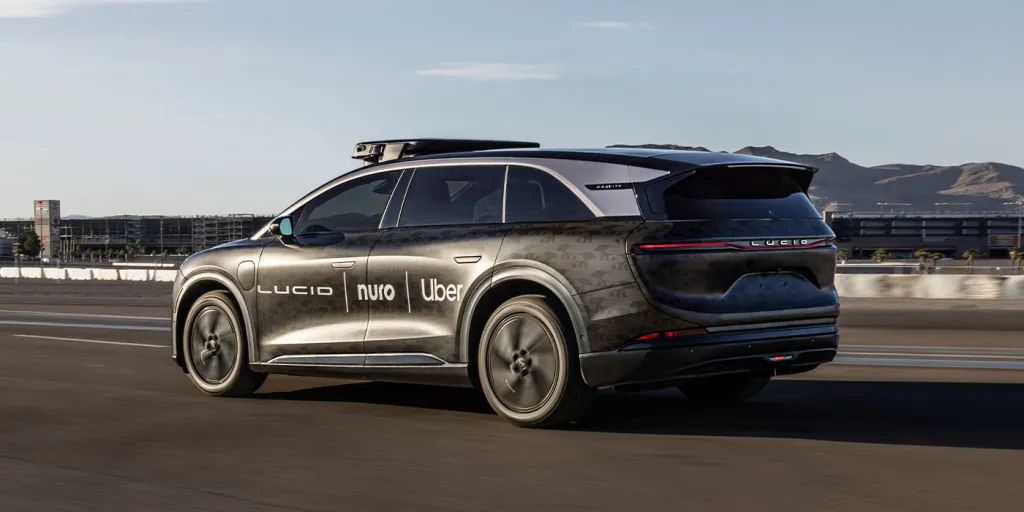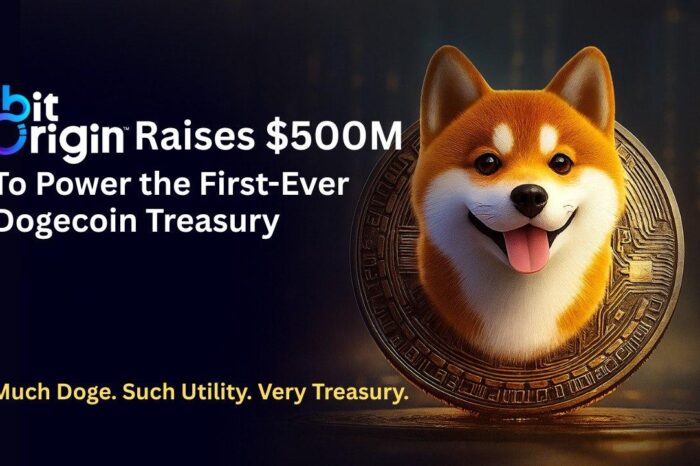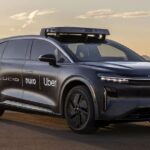Uber to invest $300 million in EV maker Lucid to launch 20,000 robotaxis with Nuro tech

Uber is getting back into the robotaxi business—and this time, it’s placing a $300 million bet on Lucid Motors and autonomous driving startup Nuro to make it happen.
The ride-hailing giant announced Thursday that it plans to roll out over 20,000 self-driving Lucid Gravity SUVs starting in 2026. These vehicles will come loaded with Nuro’s autonomous tech and are expected to hit the streets of a major U.S. city as early as late next year. The deal, spread over six years, marks a major shift for Uber, which had previously backed away from self-driving efforts in 2020 after selling off its internal AV unit.
Now, Uber’s coming back with a different playbook: invest heavily in partners instead of trying to build the tech in-house. Under the agreement, Uber will pour hundreds of millions into both Lucid and Nuro. Of that, $300 million will go directly to Lucid, according to the EV maker’s SEC filing, CNBC reported.
“We’re thrilled to partner with Nuro and Lucid on this new robotaxi program, purpose-built just for the Uber platform, to safely bring the magic of autonomous driving to more people across the world,” said Uber CEO Dara Khosrowshahi in a statement.
Lucid shares jumped more than 26% on the news, hitting $2.95. Still, the stock remains down roughly 24% this year.
This new partnership is Uber’s second major move in the robotaxi space this year. Back in April, the company struck a similar deal with Volkswagen to deploy ID.Buzz vans in Los Angeles in 2026. But unlike previous AV hype cycles, this wave comes with more caution—and more pressure. After years of promises and little delivery, commercializing autonomous vehicles has proven difficult, with sky-high costs, tight regulations, and federal investigations pushing some players like GM’s Cruise to hit the brakes entirely.

The deal comes as welcome news for Lucid. Back in 2023, the luxury EV maker was in rough shape—burning through cash and struggling to scale a business model that wasn’t built to last. At one point, Lucid was losing a staggering $338,000 on every car it sold, caught in the thick of an escalating price war with Tesla.
Others are still grinding. Amazon-backed Zoox is testing robotaxis without steering wheels or pedals in Las Vegas and says commercial service is coming soon. Tesla recently kicked off a limited robotaxi trial in Austin with a dozen Model Y SUVs. Elon Musk has promised a wider rollout in other cities later this year.
Waymo, the most consistent operator in the space, quietly expanded to multiple U.S. cities and crossed 100 million miles of autonomous driving this month, with about 1,500 cars in rotation.
As for Uber’s new ride, a prototype of the Lucid-Nuro vehicle is already cruising a closed track at Nuro’s test facility in Las Vegas. Lucid interim CEO Marc Winterhoff said the company is branching out from its electric luxury sedan roots. “We are expanding beyond our traditional EV technology leadership and working on partnerships and going now into areas that in the past we have not really focused on,” Winterhoff told Reuters.
Nuro, founded by two former Waymo engineers, started with delivery bots and is now aiming much bigger—selling its AV tech to both commercial and consumer vehicle makers. “We have other very active conversations going on the personal vehicle side … where we would integrate Nuro driver into vehicles that will get sold to end consumers,” said Nuro co-founder and president Dave Ferguson.
Before any of this hits the streets, Nuro will need to secure state-level operating licenses, though it already holds some from its earlier delivery pilots.
For Uber, this deal isn’t just about getting back into autonomy. It’s about staying relevant in a space where robotaxis—after years of false starts—might finally be inching toward reality.




